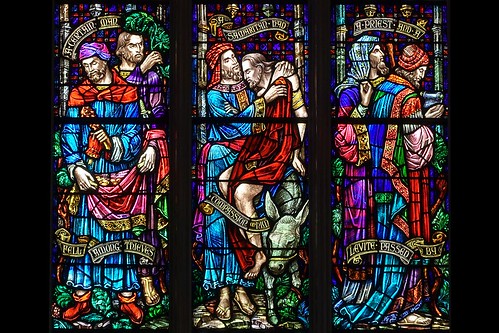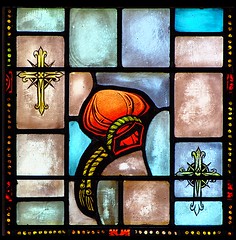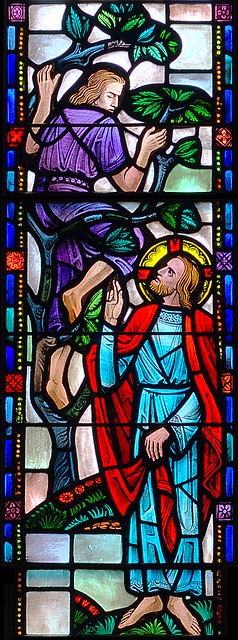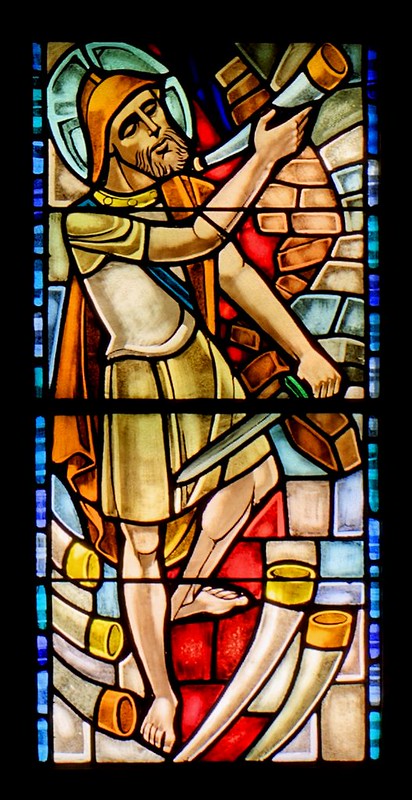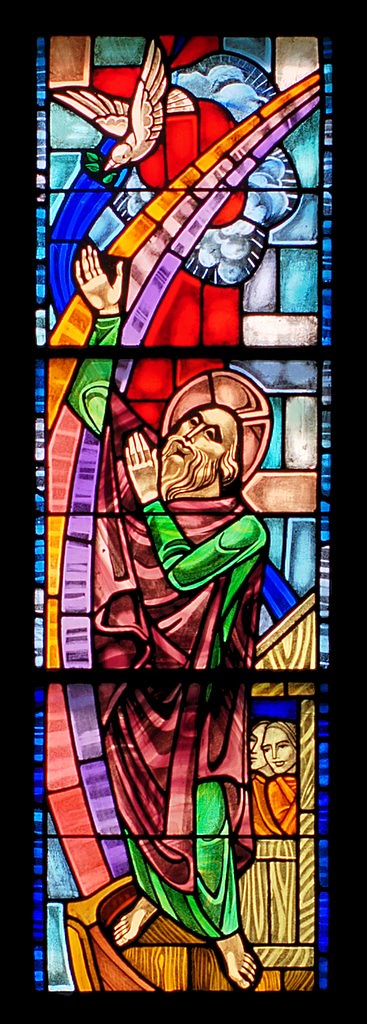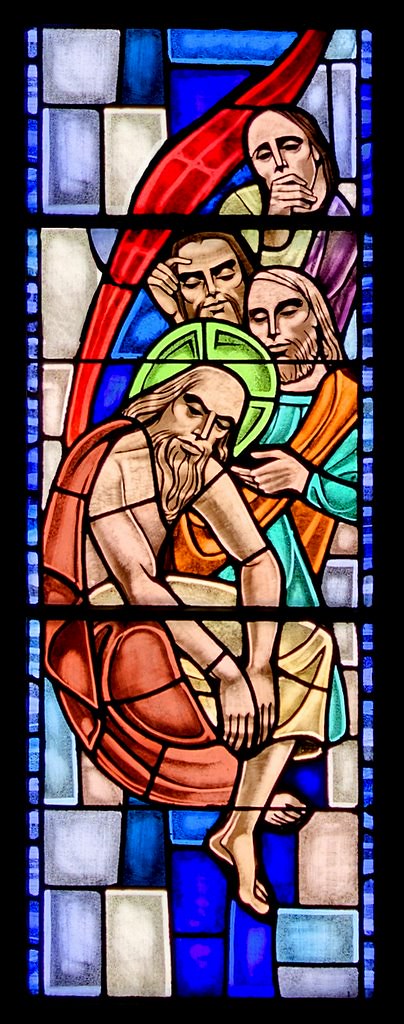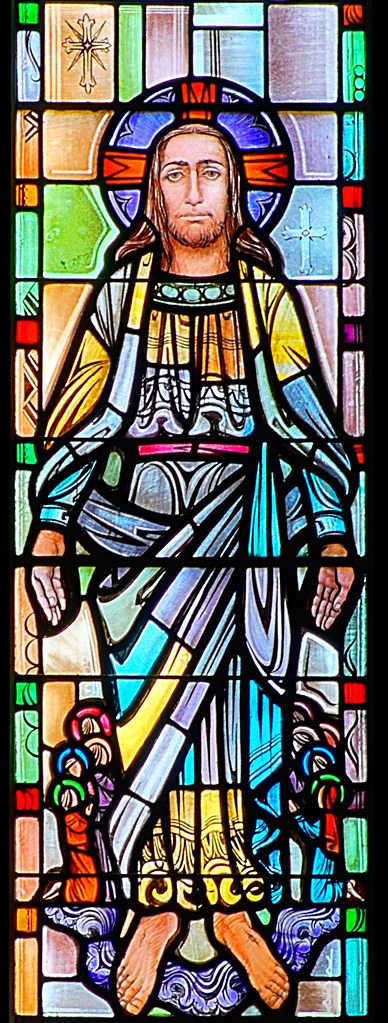(Part One in a Series)
by Pastor Paul Wolff
 |
| God first wrote the commandments in our hearts. But after the fall into sin God wrote them on stone tablets which He gave to Moses and the Israelites at Mount Sinai. |
All sin is equally evil in God’s eyes. God is holy and sinless, and He first made people holy and sinless as He is. All mankind was condemned to live in sin because of what was essentially Eve’s sin of thievery which was combined with coveting and idolatry (the underlying sin which leads to all other sins). However, that theft was full rebellion and rejection of God, and the equivalent of murder since it has so far led to the death of everyone born before 1903 (and hundreds of millions of people since then), though one man has risen from the dead and still lives.
God gave us the Fifth Commandment (as Lutherans and most other Christians count the Commandments), “You shall not murder,” because God is the “Living God.” God is called the “Living God” not just because He is alive, but because He is the source of all life, and the only one who can give life to the dead. God gave us the Fifth Commandment because He doesn’t want anyone killing the people whom He loves (including you, your neighbors, and your enemies). So we see that this commandment is good, as all of God’s commandments are good. You don’t want your neighbor murdering you, and neither does God – so God commanded “You shall not murder.”
 |
| The sin of thievery seems to be of lesser degree than the irreversable sin of murder. But both sins need Jesus to forgive them, so we may be saved. |
You
will sometimes hear people say,
“… at least I am not a murderer.” You know that
someone is trying too hard to justify their
pet sins when they say
this. Murder is
a pretty low standard for anyone to measure up against. That person
is actually saying, “I may be a dreadfully wicked person, but at
least I am not the worst person (for now).” Of course, once you get
to this point, the sin of
murder (in
one form or another) is
likely to follow soon
thereafter.
Despite
the horrific nature of murder, there is no lack of examples of murder
in the Bible. This shows the corrupting nature of sin. The first
person born on the earth (after God created Adam and Eve) ended up
murdering his younger brother. When
I have taught the Ten Commandments I have noticed that sins
against
all the Commandments in the Second Table (and likely all of the
Commandments in the First Table, also) can lead to murder. From this
I have concluded that there are many different causes of the sin of
murder, such
as dishonoring
parents and authorities, adultery, theft, lying, and covetousness.
However, as I have studied the Holy Scripture further, I believe
there is
a single underlying foundational cause of murder which leads to all
the other superficial immediate causes of this terrible sin.
Any
sin against the Second Table of the Commandments can lead to murder
because these sins are committed against our neighbor. Taken to the
extreme, every sin can lead to murder because murder is the ultimate
expression of the
sins against your neighbor, including dishonoring
parents and authorities, adultery, theft, lying, and covetousness.
There
are also the so-called “seven deadly sins” which are pride,
greed, wrath, envy, lust, gluttony, and sloth. Although not all of
these are always sinful (there can be righteous anger, and possibly
pride – though righteous
pride
is much more rare than you might
like to believe), these all could be considered deadly because they
can lead someone to murder, and they lead people to lose faith in
Jesus or lead us to reject Christ’s forgiveness and salvation.
 |
| In the Parable of the Good Samaritan The Priest and the Levite did not hurt the injured man, but neither did they help him. |
Murder
may have many immediate causes such as coveting, lust, greed, envy,
hatred, and others. Yet underlying all of these immediate causes
there is a fundamental sin which leads all these different causes to
end up with the same result of murder. That fundamental murderous
sin
is an idolatrous selfishness which leads people to take into their
own hands the power over life and death, which rightly belongs only
to God. When someone
begins to justify his
pet sins in his
own
mind he
is
likely to
forget
God’s commandments and it is sometimes a short step to think that
one’s own sinful desires are good and right. Once
that happens, even the lives of others become secondary to what the
sinful person desires. This is what we call “hatred”. I have
shown elsewhere
that no racist person begins by
hating others. It can begin with something as seemingly innocent
(though still wickedly sinful) as wanting what is best for a group
that I identify with – over and against one or more groups that I
don’t identify with. Sinful desires can grow into the same
murderous hatred even though they have one of several different
starting points. This is why we must repent of our sins early and
often. Martin Luther suggests that we use our Baptism correctly if we
remember our sinfulness daily and “drown” the old sinful nature
through contrition
(sorrow
over sin)
and repentance,
trusting in Jesus to forgive our sins and give us what we need, even
if it is not what we necessarily desire. If we delay repenting
then those sinful desires grow into actual sins of word and deed, and
can lead to murder long before we realize it.
 |
| In the days of Noah, God saw that “the wickedness of man was great in the earth, and that every intention of the thoughts of his heart was only evil continually.” (Genesis 6:5) |
Despite the terrible finality of murder, God still forgives repentant murderers. Murder is a sin in God’s eyes, like any other sin. The number of murderers in hell is not an indication that God does not forgive murderers, but that the murderers feel so guilty that they despair and think their sin cannot be forgiven, and so they do not repent and seek God’s mercy and forgiveness. In this life we think we have to pay for our own mistakes, but the sin of murder is too big. This leads to despair, and an unrepentant attitude which leads to damnation. Murder is not unforgivable, but the guilty murderer must repent and trust in Jesus to forgive him or her.
 |
| Jesus is the Good Samaritan who saved us sinners from death at the great cost of His own suffering and death on the cross. |
Jesus did not murder, in any way, but helped His neighbors by healing them from all kinds of sickness, disease, injury, and even death. Then Jesus allowed wicked men to conspire against Him to have Him murdered. Jesus allowed them to murder Him as a sacrificial lamb so that He could take our place and suffer the wrath of God the Father for the sins of the world. Jesus did this so that you could be redeemed and rescued from sin and death.
Murder is a dreadful sin, and a terrible evil, but it is not unforgivable. Jesus died to pay the price to redeem murderers, as well as all sinners. If you are guilty of murder, or hatred, or neglect, or any other sin which breaks God’s commandment against murder, then repent and trust in Jesus to forgive these, and all your sins. It is a great comfort to know that the almighty and Holy God forgives even the sins of the worst sinners, that God may be praised and glorified forever for His great love and mercy.
Other Articles in this series:
The True God Cannot Murder
The Opposite of Murder
Related Articles:
Why
Does God Condemn Unbelievers to Hell?
A Biblical Argument for Self Defense
Anger
Why Christians Condemn Abortion but Support the Death Penalty
The Good Samaritan
Is it Easier to Heal, or to Forgive?
Christ Has Done All Things Well
The Promise of Christ in Water And Light
Modern Molechianism
“Let His Blood be on Us and on Our Children”
The Passion of Christ
The Slaughter of the Innocents
Friends and Murderers
The Promise of the Rainbow
The True Story of a Terrorist Turned Christian
The Morality of War
Rejecting the Survival Instinct
The Leading Cause of Death in America

